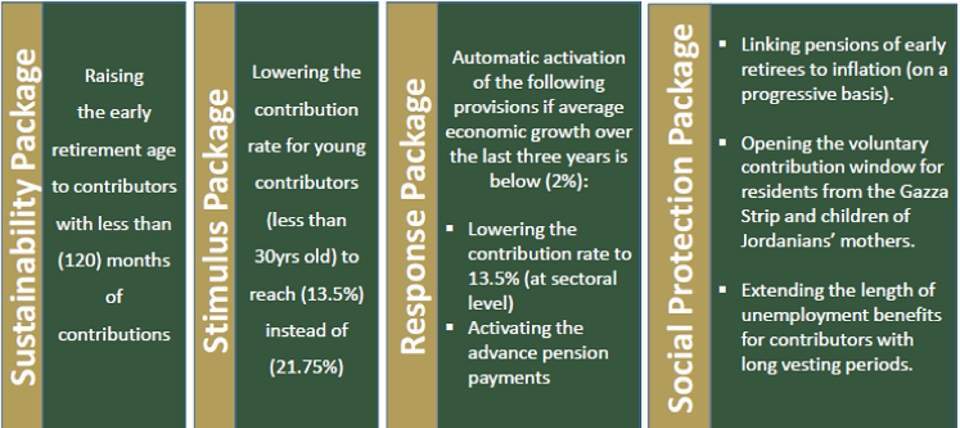There is no doubt that today, as part of the global system, we
are facing a new set of norms that put us all, individuals and institutions, in
front of new patterns and responsibilities that must be carefully thought
about.
اضافة اعلان
While these are being observed more as challenges, they present us with an opportunity to rethink our
strategies toward more positive, agile, and responsive directions.
As social
security systems are one of the most critical systems that are affecting the
present and future of individuals and countries across the globe, related
regulations, policies, and interventions must be aligned with these new norms
in order to capitalize on the opportunity of having an environment that enables
change.
Jordan’s
social security system has evolved significantly over the last four decades,
with efforts focusing on expanding the social security umbrella, starting with
large firms and progressing through the strategic decision to include civil
servants in 1995, followed by the inclusion of military personnel in 2003.
In
the last decade, two significant new insurances — maternity insurance and
unemployment insurance — were introduced, which not only strengthened the
social security system, but also, and more crucially, served as effective tools
for enhancing employment and labor market flexibility.
COVID-19
provided a real opportunity for the Social Security Corporation (
SSC) to
consider qualitative tools and measures to address the consequences of the
pandemic, as we may witness new pandemics or geopolitical conditions that
result in difficult economic circumstances similar to those experienced during
the pandemic.
Today, all of us, organizations and individuals, must have clear
visions and strategies in place to promote economic development, encourage
i
nvestment, enhance youth employment opportunities, and reduce youth
unemployment rates.
We
must also consider measures to ensure the sustainability of social
security and its ability to serve future generations, which requires bridging
the gaps in the current insurance system, with early retirement at the top of
the list.

These
considerations and developments are essentially mirrored in the proposed
amendments that the SSC is considering building to its law. While the scope of
the amendments will be limited, their impact and effectiveness can be
maximized.
The
"sustainability
package", the first set of such amendments, aims to address the early
retirement phenomenon as well as demographic changes associated with higher
life expectancies and increased ability to work at older ages.
In this regard,
the SSC intends to subject contributors with less than 120 months of contributions
to the 2019 amendment, which raised the retirement age for males to 55 and
females to 52.
The SSC is also considering closing the early retirement window
for participants with contributions of less than 36 months by 2025, as well as
increasing fines for employers who hire early retirees without notifying the SSC.
The
second package, named the
"stimulus
package" aims to lower the cost of social security contributions for
young workers and entrants to the labor market; a measure designed to address their
high unemployment rates and the need to increase their employment
opportunities.
The
"response package" represents a new approach to dealing with adverse business-cycle shocks, namely
responding to slowing economic growth and downturns (a countercyclical measure).
Amendments included in this package will allow the SSC to activate the partial
coverage window for old-age insurance, similar to Tamkeen Iktisadee 1, in the
case where average annual economic growth rate is less than 2 percent in the
past three years, in addition to utilizing tools developed by the SSC during
the pandemic, such as issuing pension advances to participants without
burdening future obligations.
The
“social protection package” aims to
strengthen the social protection system for retirees, with early retirees being
eligible for an annual increase directly linked to the inflation rate on a
progressive basis.
Furthermore, the package includes giving unemployment
benefits to those who have been covered by social security for a long time. The SSC is
also examining the possibility of giving the opportunity for residents from
Gaza Strip and children of Jordanian mothers to voluntarily contribute to the SSC.
Read more
National news






